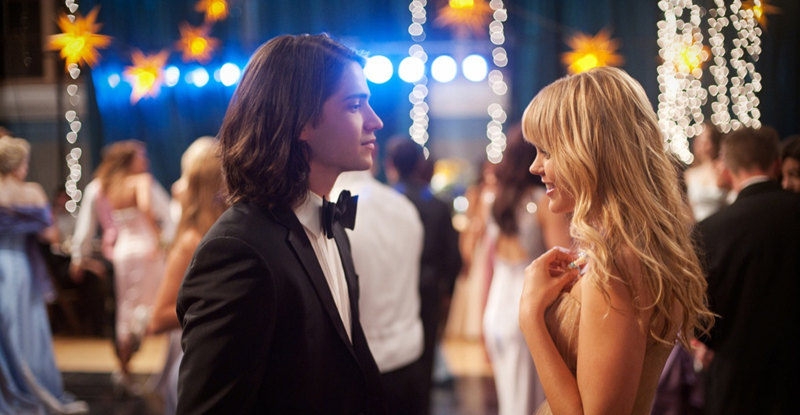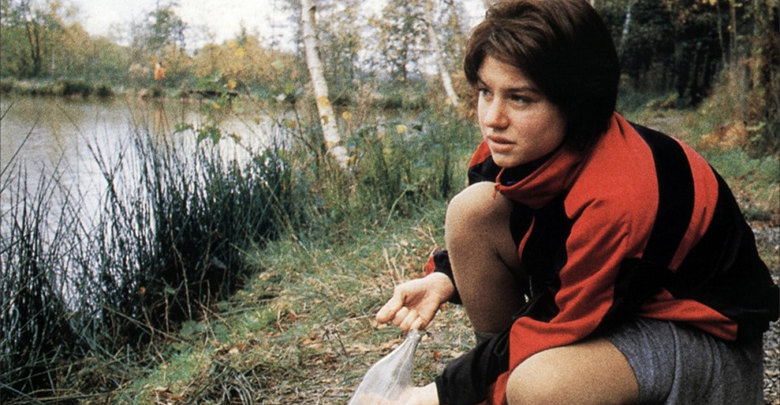Man is a religious animal . . . the only religious animal that has the true religion—several of them. He is the only animal that loves his neighbor as himself and cuts his throat if his theology isn’t straight—Mark Twain
Twain’s quote came to mind as I was watching the 20th Anniversary Director’s Cut of Patrice Chéreau’s edgy historical epic-drama, “Queen Margot,” which revolves around the St. Bartholomew’s Day Massacre of 1572. Begun as the planned assassination of the most wealthy and influential Huguenots (French Calvinist Protestants) by the ruling Roman Catholics, it quickly turned into a mob-driven massacre of some 6000 Protestants who had gathered in Paris to attend a wedding that was supposed to unite the two religious factions. And yes, throats were slit, if we can judge by this graphic and absorbing period drama.
There are times when the stage movement and contemporary style of filming—quick cuts, and a preponderance of medium shots and close-ups—work against the illusion of watching events unfold in August of 1572, but the screenplay adapted from an Alexandre Dumas novel by Daniele Thompson and director Patrice Chéreau quickly pulls us back into the period.
Like so many complicated historical dramas, it’s sometimes difficult to tell who’s doing what to whom, or why. As if to acknowledge that, Cohen has provided a color booklet that includes a synopsis of the film and a summary of the events surrounding the St. Bartholomew’s Day Massacre.
The pivotal figure is Marguerite de Valois, who is called “Margot” by one of three brothers with whom, the film suggests, she’s had incestuous relations. French actress Isabelle Adjani captures the lust, the sensuousness, and the complicated feelings that Margot has for her family and her people, and she does so with the kind of understatement that keeps this film from turning into another “Caligula.” Margot is a conflicted character, both in terms of her sexual impulses and also her loyalties and sense of morality. There is licentiousness, there are orgies, and there are “I need a man tonight” moments when Margot trolls the streets with her conniving and equally sex-driven lady in waiting, Henriette (Dominique Blanc). But those moments are offset by political intrigue and violence—some of which presents itself as harmless entertainment, while sometimes we truly get the sense of pent-up hostilities that are about to break loose.
Historians credit Catherine de Médicis (played here by Virna Lisi) as the orchestrator of the tragic events that are recounted in this 1994 film. Forced to step down as queen, she continues to reign through her ineffectual and effete son, Charles IX (Jean-Hugues Anglade), whom she knows full well has aligned himself with the leader of the Huguenots, Admiral Coligny (Jean-Claude Brialy). No matter, and no matter that she has forced Margot to marry the Huguenot Henri de Navarre to “keep the peace.” As Protestant leaders and prominent Huguenot families gather in Roman Catholic Paris for the wedding, Catherine has been scheming all along to dispose of their Protestant rivals, and the leader of the Catholics—the Duke of Guise (Miguel Bose)—quickly loses control of the situation.
Margot alone emerges with a conscience, and her development as a character is assisted by two catalysts—her “husband” in name only, whom she nonetheless sees as a human being that does not deserve the fate in store for him, and a young Protestant named La Mole (Vincent Perez), who forces her to grapple with her feelings about sex, love, and the murderous antagonism between Catholics and Protestants that’s fueled by her own family’s political ambitions.
“Queen Margot” won the Jury Prize at the Cannes Film Festival and also picked up five Cesar Awards—France’s version of the Oscars—for Best Actress (Adjani), Best Supporting Actor (Anglade), Best Supporting Actress (Lisi), Best Cinematography, and Best Costume Design.
Sometimes those costumes look a little too new, but there’s enough blood and grit in this film to more than make up for it. With a runtime of 159 minutes, “Queen Margot” plays like a miniseries that never feels too long. This 20th Anniversary Director’s Cut marks the first time that it’s been available in the U.S. in the original 159-minute runtime, rather than a 139-minute slimmed down version. So fans of the film ought to be pleased.
Video:
“Queen Margot” comes to Blu-ray via an AVC/MPEG-4 transfer to a 50GB disc, and to my eyes it looks impressive, for the most part. There are some scenes that seem underlit and others that have more grain—though I didn’t see this in the theaters and have nothing to compare it to. The grainier segments occur in night scenes and scenes involving squalor, so they could well be deliberately grittier. But in celebratory scenes on the day of the wedding the colors are so rich they’re almost bombastic. It’s a real assault on the senses, especially coupled with those quick cuts and close-ups. “Queen Margot” is presented in 1.85:1 widescreen.
Audio:
The featured audio is a French DTS-HD MA 5.1 that’s automatically set to come up with default subtitles in English. The sound is pretty impressive for a 5.1, an active soundtrack that captures the chaos of the events—and yet if you focus on a sound you can isolate it, so the separation is distinct and distinctly superb.
Extras:
Director Emeritus of the New York Film Festival Richard Peña provides a fascinating full-length commentary, but other than that there’s not much here. A collectible booklet is provided, with short but informative sections devoted to a synopsis of the film, a description of the historical St. Bartholomew’s Day Massacre, Notes from director Patrice Chéreau dated March 1992 (accompanied by concept art), an interview with the director and Daniele Thompson by journalist Serge Toubiana, and notes on the restoration. Stills and behind-the-scenes photos are scattered liberally throughout this well-done booklet. My only complaint is that the typescript appears to be 9 point, or maybe it just looks smaller in white against dark pages. But I found the pieces difficult to read.
Bottom line:
The trailer for “Queen Margot” played up the sexual aspects, almost to the point where I braced myself for another “Caligula.” That’s not the case, though. This is serious history and serious filmmaking, and there’s nothing gratuitous involved. If you don’t know anything about the St. Bartholomew’s Day Massacre or Catholic-Protestant tensions in 16th century France, “Queen Margot” manages to tell a broader story within the framework of personal dramas and intrigues that spill over into the political realm. It’s a highly absorbing historical drama that’s rich with moral, emotional, and narrative complexities.


